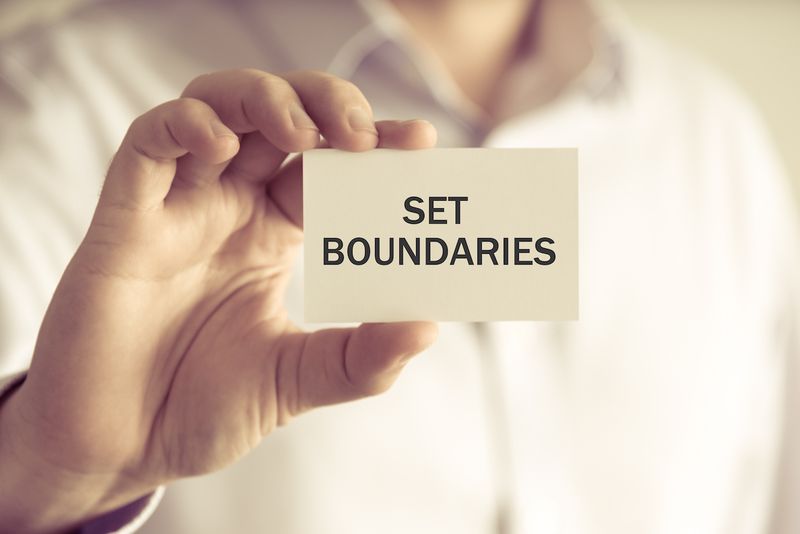15 Daily Habits To Boost Your Emotional Health
Discovering small, daily habits that nurture emotional health can transform your life. It’s about building little rituals that, over time, make a significant impact on your well-being.
By incorporating these practices into your routine, you’ll cultivate a more grounded, balanced, and joyful life. Let’s explore these 15 habits that promise to uplift your spirit and enhance emotional resilience.
1. Start your day without reaching for your phone

Imagine waking up to a world where your first interaction isn’t with a screen but with the gentle morning light. Starting your day without reaching for your phone allows your mind to awaken naturally. It offers a moment of peace before the flood of notifications and news.
Instead of diving into the digital world, take a few minutes to stretch, breathe, and set an intention for the day. These quiet moments can significantly shape your mental landscape, fostering a sense of calm and control.
By resisting the urge to check your phone first thing, you create a boundary that safeguards your mental space, setting a positive tone for the day ahead.
2. Check in with how you actually feel, not just how you “should”

In a world full of expectations, taking a moment to check in with your true feelings can be liberating. It’s an invitation to pause and reflect, acknowledging emotions without judgment.
Journaling can be a helpful tool in this process. By writing down your thoughts, you explore your genuine feelings, rather than those imposed by external pressures. This practice nurtures self-awareness and emotional intelligence.
Allowing yourself to feel without the constraints of ‘should’ can lead to a more authentic life. It helps in understanding your emotional triggers and fostering compassion towards yourself, paving the way for healthier emotional patterns.
3. Set one boundary—then honor it

Setting boundaries is an act of self-love. It’s about defining what is acceptable and what isn’t, protecting your emotional space from unnecessary stress.
Identify one area in your life where a boundary is needed, then commit to honoring it. Whether it’s turning off work emails after hours or saying no to energy-draining commitments, respecting this boundary empowers you.
By upholding your boundaries, you reinforce your worth and teach others how to treat you. It’s a powerful statement that says, “I value my time and emotional health.” This practice nurtures respect and balance in relationships, both personal and professional.
4. Say no without over-explaining

Saying no is a skill, and it doesn’t require elaborate justifications. It’s about recognizing your limits and respecting them, without succumbing to guilt or pressure.
Practice saying no to requests that don’t align with your priorities. A simple, “I’m unable to commit to that right now,” is enough.
By declining without over-explaining, you assert your boundaries and preserve energy for what truly matters. This habit fosters self-respect and clarity, encouraging a balanced approach to commitments and relationships.
5. Drink water before coffee

Before reaching for that morning coffee, consider hydrating first. Drinking water upon waking helps refresh the body after a night’s rest.
Hydration kick-starts your metabolism, aids digestion, and improves mental clarity. It’s a simple habit that makes a significant difference in how you feel throughout the day.
By prioritizing water, you establish a morning routine that supports both physical and emotional health. It’s a mindful choice that sets a positive, nurturing tone for your well-being.
6. Take a walk without music, just to hear your thoughts

In our constantly connected world, silence is a rare commodity. Taking a walk without music offers a chance to tune into your own thoughts.
This practice encourages mindfulness, allowing you to process emotions and ideas without distraction. It’s a meditative journey that enhances self-awareness and creativity.
By embracing silence, you cultivate a deeper connection with your inner self, fostering emotional clarity and resilience.
7. Reach out to someone who doesn’t expect it

Connecting with others can lift our spirits, especially when it’s unexpected. Reach out to someone who might not anticipate hearing from you.
A thoughtful message or call can brighten their day and strengthen bonds. It’s a reminder that relationships flourish when nurtured with genuine care.
This small act of kindness not only boosts your emotional health but also fosters a sense of belonging and community.
8. Celebrate one tiny win—out loud

Celebrating small victories is a powerful way to build self-esteem. By acknowledging accomplishments, no matter how minor, you reinforce a positive mindset.
Share your win with a friend or family member. Speaking it out loud solidifies the achievement and invites others to join in the joy.
This practice cultivates gratitude and confidence, enhancing emotional well-being and encouraging a cycle of positivity.
9. Write something down before bed that you didn’t say out loud

As the day winds down, take a moment to reflect on thoughts left unsaid. Writing them down provides a release, freeing your mind for restful sleep.
This practice serves as an emotional cleanse, offering closure and clarity. It transforms unspoken words into insights, easing stress and anxiety.
By creating space for reflection, you nurture a peaceful mind and a heart ready for the new day.
10. Notice when your body is holding stress—and release it

Our bodies often hold stress without us realizing. Becoming aware of physical tension is the first step in releasing it.
Incorporate simple stretches or deep breathing into your routine. These practices relax the muscles and calm the mind, reducing stress.
By cultivating body awareness, you enhance emotional resilience and foster a harmonious connection between mind and body.
11. Step away from screens for 10 intentional minutes

Screens dominate our lives, often leading to digital fatigue. Taking a deliberate break for just 10 minutes can be rejuvenating.
Use this time to engage in a calming activity, like sipping tea or gazing out the window. These moments of disconnection refresh your mind and spirit.
By stepping away from screens, you reclaim your focus and energy, supporting overall emotional health.
12. Keep a “reasons I’m okay” list handy

When life feels overwhelming, having a “reasons I’m okay” list can be grounding. It’s a reminder of the positive aspects of your life, offering comfort and perspective.
Compile this list with affirmations, achievements, or simple joys. Keep it nearby for moments of doubt or stress.
By focusing on these reasons, you cultivate resilience and a positive outlook, reinforcing emotional strength.
13. Name what you’re grateful for, even if it’s just decent coffee

Gratitude is a powerful emotion that can shift your perspective. Take time to name something you’re grateful for, no matter how small.
Whether it’s a delicious cup of coffee or a sunny day, acknowledging gratitude fosters a sense of abundance.
This practice enhances emotional well-being, creating a habit of recognizing the good in everyday life.
14. Let yourself rest before you’re exhausted

Rest is essential, yet often postponed until exhaustion hits. Allow yourself to rest before reaching that point.
Embrace short breaks throughout the day, listening to your body’s needs. This proactive approach prevents burnout and enhances productivity.
Resting mindfully nurtures emotional health, providing the energy needed for life’s demands.
15. Remind yourself daily: feelings aren’t facts—they’re signals

Feelings can be overwhelming, but they aren’t always reality. Remind yourself that they’re signals, guiding you towards understanding.
By acknowledging feelings without immediate reaction, you gain insight into your emotional landscape. It’s an opportunity for growth and clarity.
This reflection fosters emotional intelligence, empowering you to respond thoughtfully to life’s challenges.







